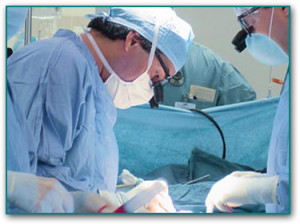FREE CASE EVALUATION: 1-800-632-1404
If you are reading this page, you are likely suffering from pain after a prior surgery implanting a transvaginal mesh device / TVT / TVM system and sling.You may have been diagnosed with stress urinary incontinence or pelvic organ prolapse. Whatever the reason, you are likely in pain today, and we believe we can help you. If you would like to speak to a TVT lawyer, TVM lawyer or transvaginal mesh lawyer, please call us today for a free case evaluation.
The U.S. Food and Drug Administration (FDA) recently issued a warning regarding vaginal surgeries that use mesh to repair pelvic organ prolapse. According to the warning, the procedures are no more effective than other options and complications are common.
A growing number of reports involving surgical mesh-associated complications in women have spurred the FDA to issue its second warning about the device in under three years. Many patients were never told that mesh used in their pelvic surgery could break through or scar their body. As many as 75,000 such surgeries are performed yearly.
If you were not aware, mesh products were first introduced in the 1950s for hernia repairs. Though the agency didn’t approve the material for use in prolapsed surgeries until 2002, doctors began using it “off label” for abdominal procedures in the 1980s and for vaginal procedures in the 1990s.
Surgical mesh is typically used in pelvic floor surgery to treat prolapse and incontinence. In an attempt to simplify and standardize the technique of vaginal mesh replacement, “Vaginal mesh kits” were introduced about seven years ago. The FDA considers surgical mesh to be a “Class II” medical device, posing an intermediate risk of harm to patients.
Vaginal Mesh Injuries
After the mesh is implanted, it can move around the body and often lead to serious injury including puncturing nearby organs, cutting through tissues and more – caused by frayed edges of the mesh material. Some women have become septic, suffering from infection. And, if not treated promptly, these infections can lead to death.
Erosions occur in about 10 percent of women undergoing vaginal prolapsed repairs that use mesh. The piece of material can easily be removed in some cases, but in others, tissue may have grown in and around the mesh requiring multiple medical interventions, notes the FDA.
CALL: 1-800-632-1404
FILL OUT THIS FORM BEFORE FOR FREE HELP:
